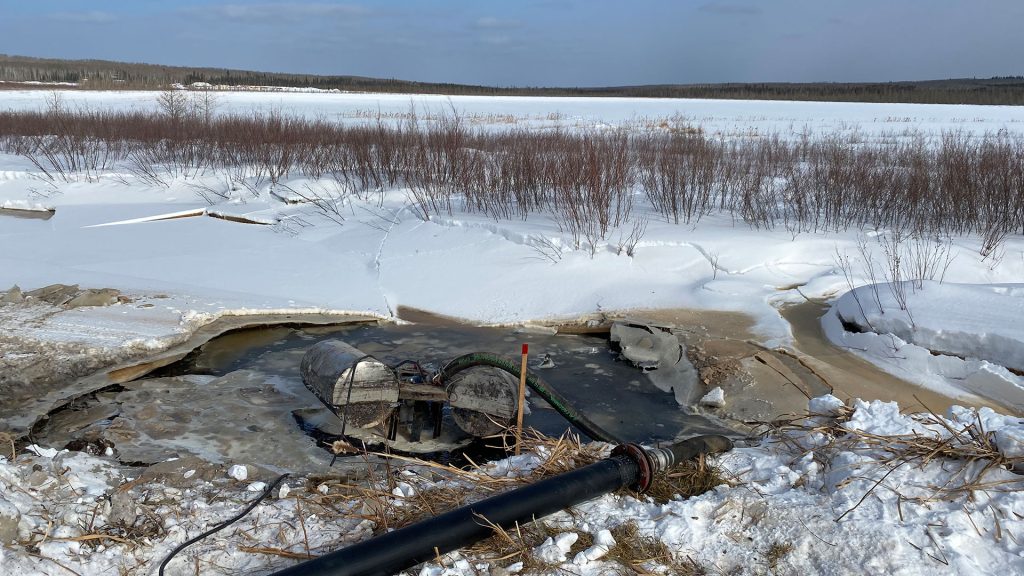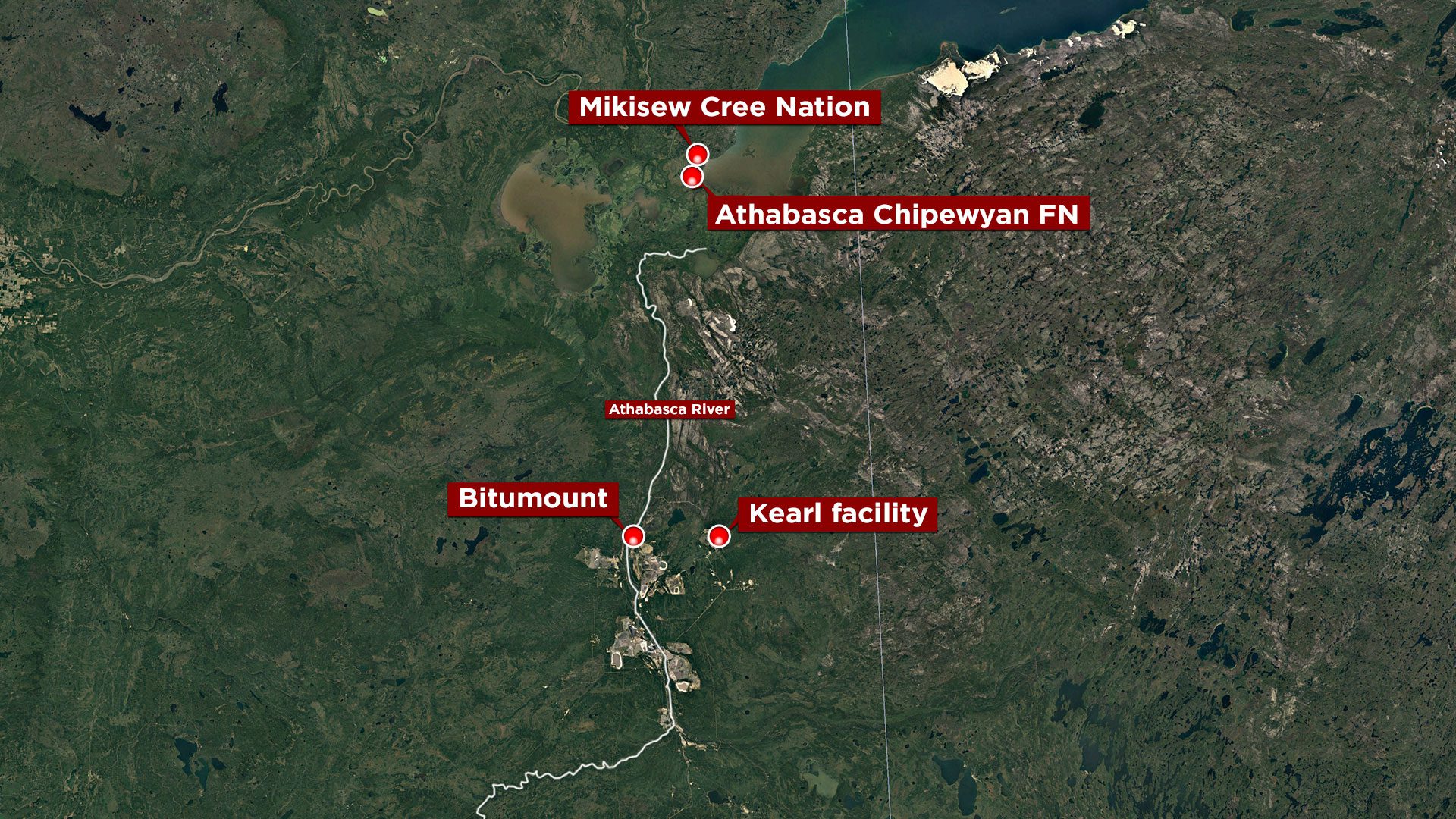
A photo taken from the Kearl site in northern Alberta. Photo: Athabasca Chipewyan First Nation.
Leaders from Athabasca Chipewyan First Nation (ACFN) say an inspection of the Kearl oil sands mine in northern Alberta shows a massive leak from a tailings pond is worse than expected.
“Recently, ACFN representatives were finally granted access to the spill site on the north side of the Kearl tailings pond. What we observed was worse than what anyone anticipated,” said a statement released Tuesday afternoon.
According to the statement, inspectors found toxic water still on the ground in an “unfenced, uncontained area immediately adjacent to streams and pond”, no barriers between the leak and nearby waterways, and “new tailings puddles forming as the temperature increased.”
APTN News has not been on the site to independently verify the effects of the leak that started in May of 2022 and only became known recently.
A public meeting is scheduled for Wednesday.
Imperial Oil’s Kearl mine site is about 570 km north of Edmonton and 300 km south of Athabasca Chipewyan First Nation and Mikisew Cree Nations.
Both Indigenous communities are located along the Athabasca River where they fear contaminants will end up.
Tailings ponds are used extensively in the tar sands. These reservoirs are used as a dumping ground for water contaminated with various chemicals and compounds including mercury, arsenic and heavy metals left over from the process of extracting the bitumen from the clay.
The idea is that the solid waste will settle to the bottom and the water can be reused. But it’s not clear whether that plan is working.
According to the organization Environmental Defence, the use of the word “ponds” is misleading. They can stretch “as far as the eye can see,” and impact “healthy boreal systems, sprawling through Indigenous territories, leaking contaminants into groundwater and emitting greenhouse gasses.”
The news from ACFN is in stark contrast to a release from Imperial Oil on March 15 that said the company was “nearing completion of cleanup from drainage pond overflow at Kearl.”
“Work to clean up wastewater released from a drainage pond on January 31, 2023, is nearing completion. All impacted surface ice and snow in the area has been removed and safely disposed of,” the statement said. “Sampling is in progress to confirm all impacted materials have been removed.”
APTN is waiting to hear back from Imperial Oil on whether anyone will be made available for an interview. In an emailed statement, the company said it is “engaging with Indigenous community leaders and members to answer their questions, provide information and begin to rebuild trust.”
Read More:
While tailings pond leaked, Imperial Oil lobbied Alberta government on ‘cost effective’ regulation
Environment Canada said the “seepage is believed to be deleterious, or harmful, to fish.”
The government said enforcement officers issued a “Fisheries Act Direction” to Imperial “requiring them to take immediate action to prevent any seepage from entering fish-bearing waters.”
Steven Guilbeault, minister of Environment and Climate Change who only recently learned of the leak, says his department is putting together a group to keep tabs on the work being done at the site.
On Monday, Guilbeault said he’s concerned about the gaps in reporting the spill.
“The seepage was not communicated to affected communities in a timely or appropriate way by the company or provincial regulator,” the minister said in a release. “This demonstrates that the system did not work in this case and needs to be examined and strengthened.”
Guilbeault said the federal government has proposed a joint working group between both levels of government and Indigenous communities with participation from oil companies.
The group would give regular updates on remediation and containment plans.
However, Guilbeault was unable to say what consequences, if any, would be levied against Imperial for failing to report the leak in a timely manner.
ACFN said “we are not going away” when it comes to monitoring the spills’ effects on the surrounding environment.










